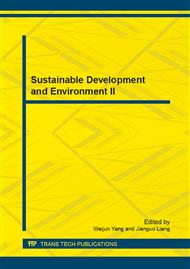p.1608
p.1611
p.1615
p.1620
p.1624
p.1629
p.1633
p.1638
p.1644
Research on Extracurricular Teaching System Based on Twitter Mode
Abstract:
After a long practice and intensive research, targeted on innovation of extracurricular teaching system, with Diversified Teaching Theory and innovative exchange systems among teachers and students, a new teaching scheme of extracurricular teaching system for Basic Computer Course based on twitter model was proposed in this paper. This teaching model was established in textbook knowledge, and adopted the theory of multiple intelligences, and combined hot issues of students concerning, and opens various Twitter topics for student. It embodied the theory of multiple intelligences in the curriculum and teaching methods, and was an important role to develop students' healthy personality and improve their overall quality.
Info:
Periodical:
Pages:
1624-1628
Citation:
Online since:
September 2013
Authors:
Price:
Сopyright:
© 2013 Trans Tech Publications Ltd. All Rights Reserved
Share:
Citation:


